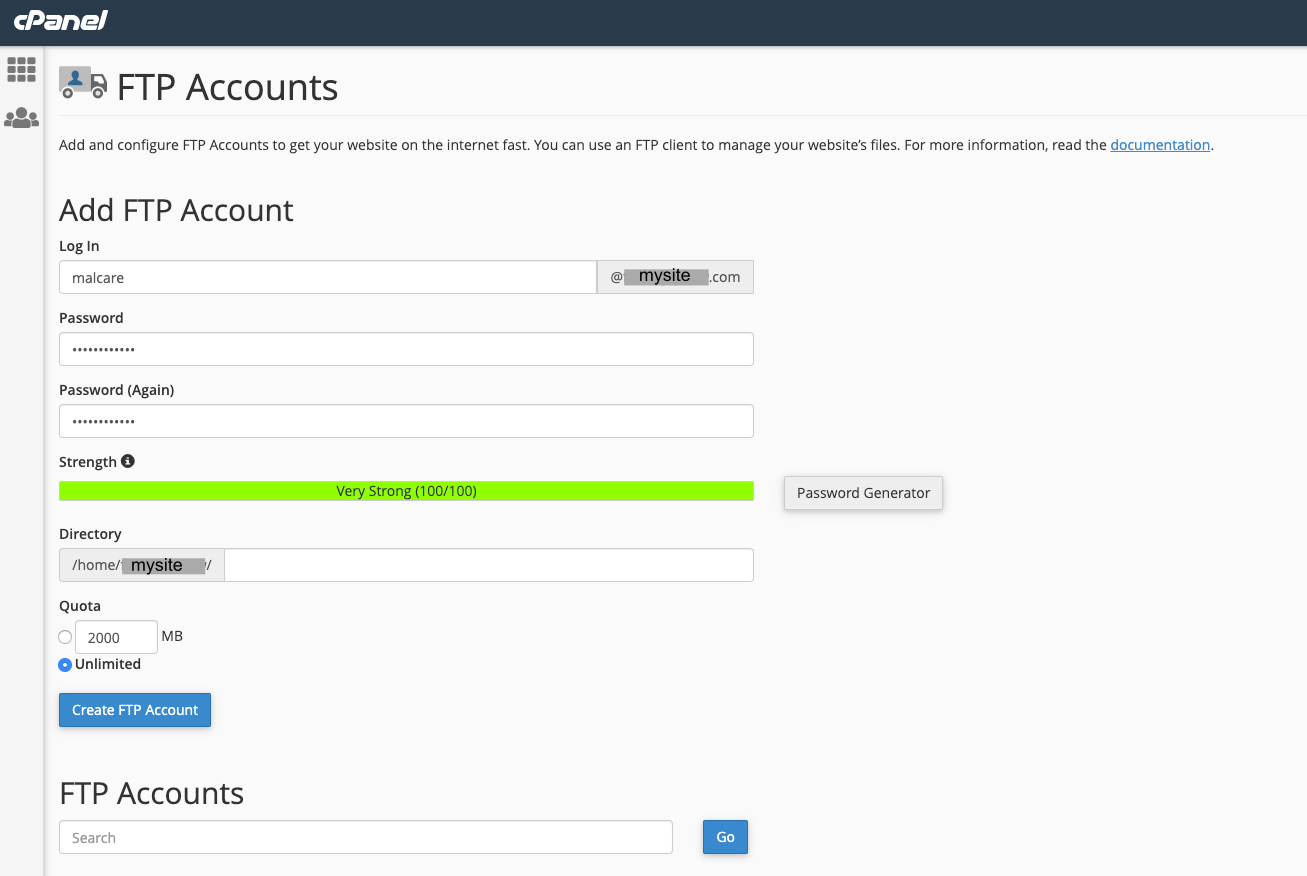
Web Hosting Tutorial Point gives tutorials about various aspects of hosting, such as FTP or cPanel. It has a user-friendly interface that makes it easy for you to navigate. You can also use the forum to ask questions or get answers from support staff. Web Hosting Tutorial is a great resource, whether you're just starting out with web hosting or an experienced professional looking for guidance.
Domain name system (DNS).
Domain Name System, or DNS, is one the most important technologies of the internet. It is a database that maps names to IP addresses. It was developed to make it easier and faster for users to access websites, as well as other resources. Before DNS, servers and computers had to remember their IP addresses. As computers became more connected, this process became much more cumbersome and tedious.
ICANN (a non-profit entity) manages DNS. The fact that ICANN has been connected to one nation does not mean that the system can be considered neutral. DNS queries don't reveal the identity or originator of DNS queries, making it attractive for hackers.

Hosting website
Web hosting is an online service where you host your website on a special computer. The server not only provides web hosting, but also offers various technologies and other services that can help your visitors access your website. These services usually include email services, domain name registration, firewall protection and email services. Access to tools and resources for building your site is also available.
You can also access your website from the admin panel of the hosting service. You can upload files, create your website and manage it through the cPanel. It is necessary to have a domain that points to your server so that you can identify your site anywhere on the internet.
Datacenters
Web servers store files in datacenters. These places can impact the speed with which content appears on a user's computer screen. Many hosting providers have several data centers across the globe. The global network of data centres will help reduce bandwidth consumption and speed up the delivery of your web pages. Caching is another benefit of using a Data Center. Caching stores temporary versions of your website files. This can greatly reduce the time it takes for your website's loading to complete.
Hosting costs
The cost of web hosting depends on the type of hosting you need and the company you choose. This hosting type is most economical. It is shared hosting. This hosting usually costs between $2-$12 per month. If you require more control of your website, you might consider dedicated hosting.

Hosting is essential for any business, whether you want to start an e-commerce site or run a personal blog. However, the question of how much should you spend is often more difficult to answer than you might think. You don’t want to put your hard-earned funds into something that doesn’t give you the results that you need. It is vital to strike a balanced between quality and price. You may be surprised at the unexpected results of choosing the wrong host service for your business.
FAQ
Where Can I Find Freelance Web Developers?
Many places have freelance web developers and designers. These are some of the best choices:
Freelance sites
These websites offer job listings for freelancers. Some have very specific requirements, while others don't care what type of work you do.
Elance, for instance, has high-quality job opportunities for programmers, writers, translators, editors and project managers.
oDesk features similar to oDesk, but they are focused on software development. They offer positions in PHP and Java, JavaScripts, Ruby, C++, Python, JavaScripts, Ruby, iOS, Android, as well as.NET developers.
Another option is oWOW. Their site is focused on web designers and graphic artists. They offer writing, video editing and programming as well as SEO, social media marketing, website design, and many other services.
Online Forums
Many forums let members post jobs and advertise. For example, there's a forum dedicated to web developers called DeviantArt. You can search for "web developer" using the search bar to see a list threads in which people are seeking help with their websites.
What is a static website?
A static site is one that stores all content on a server. Visitors can access the website via web browsers.
The term "static" refers to the fact that there are no dynamic features such as changing images, video, animation, etc.
This type of website was originally created for use in corporate intranets. It has since been adopted both by individuals and small companies who are looking for simple websites that do not require any programming.
Static websites are becoming more popular due to their ease of maintenance. Static sites are easier to maintain and update than fully-featured websites with multiple components (such as blogs).
They also load quicker than their dynamic counterparts. This makes them ideal for users on mobile devices or those with slow Internet connections.
In addition, static sites are more secure than their dynamic equivalents. There's nothing to hack into a static website. Hackers have limited access to data within a database.
There are two main methods to create static websites:
-
Using a Content Management System.
-
Static HTML Website Creation
It depends on what your needs are. A CMS is a good choice if you are new to website creation.
Why? Because it gives you complete control over your website. You don't need to hire someone else to help you set it up. Upload files directly to the CMS.
You can still learn to code and make a static website. You'll have to invest time learning how programming works.
Can I use a framework or template on my website?
Yes! A lot of people use prebuilt templates or frameworks to create websites. These templates contain all the code that is required to display information.
The following are some of our most-recommended templates:
WordPress - One of the most used CMSes
Joomla – Another popular open-source CMS
Drupal - Drupal is an enterprise-level software that large organizations can use
Expression Engine – A Yahoo proprietary CMS
You will find hundreds of templates for each platform. So it shouldn't be hard to choose the right one.
What is Website Design Software?
The website design software can be used by graphic artists and photographers, illustrators, writers and others who are involved in visual media.
There are two types main website design software options: desktop apps and cloud-based. Desktop apps are downloaded to your computer locally and you will need additional software. Cloud-based applications are hosted on the internet. This makes them great for mobile users.
Desktop Applications
While desktop applications have more features than cloud-based options, they're not always needed. Some people prefer to work only from a desktop application because it is more convenient. Some people prefer to use the same tool, regardless of whether it is on a phone or a laptop.
Cloud-Based Solutions
Web designers who wish to save time or money should consider a cloud-based option. These services allow you access any type of document to be edited from anywhere on the internet. This means you can work on a tablet while waiting for your coffee to brew.
A license is required if you opt for a cloud-based service. You won't need to purchase additional licenses if you upgrade to a later version.
You can use these programs to create web pages if you own a copy of Photoshop, InDesign, Illustrator, or another Adobe product.
Statistics
- It's estimated that in 2022, over 2.14 billion people will purchase goods and services online. (wix.com)
- It's estimated that chatbots could reduce this by 30%. Gone are the days when chatbots were mere gimmicks – now, they're becoming ever more essential to customer-facing services. (websitebuilderexpert.com)
- The average website user will read about 20% of the text on any given page, so it's crucial to entice them with an appropriate vibe. (websitebuilderexpert.com)
- Studies show that 77% of satisfied customers will recommend your business or service to a friend after having a positive experience. (wix.com)
- In fact, according to Color Matters, a signature color can boost brand recognition by 80%. There's a lot of psychology behind people's perception of color, so it's important to understand how it's used with your industry. (websitebuilderexpert.com)
External Links
How To
What is website Hosting?
Website hosting describes where visitors go when they visit a site. There are 2 types.
-
Shared Hosting - This is your cheapest option. Your website files reside on a server controlled by someone else. Customers visit your website and send their requests over the Internet to this server. The request is then handed to the owner of that server.
-
Dedicated hosting: This is the most costly option. Your website resides entirely on one server. Your traffic is private because no other websites have shared space on this server.
Shared hosting is preferred by most businesses because it's cheaper than dedicated hosting. With shared hosting, the company that owns the server provides the resources needed to run your website.
But there are pros and cons to both options. Here are the differences:
Shared Hosting Pros:
-
Lower Cost
-
Simple to Setup
-
Regular Updates
-
It can Be Found On Many Web Hosting Companies
Hosting shared with others can cost as low as $10/month. However, this price typically includes bandwidth. Bandwidth is the data transfer speed that you have over the Internet. Even if you upload only photos to your blog you might still have to pay more for large amounts of data that you transfer through your account.
You'll soon realize why your old host cost so much once you get started. Most shared hosts don't offer any customer support. While they may occasionally assist you in setting up your site and other tasks, after that you are all on your own.
Look for a provider who offers 24/7 phone support. They will attend to any issues you have while you sleep.
Dedicated Hosting Cons:
-
More Expensive
-
Fewer Common
-
You will need to have special skills
With dedicated hosting, you get everything you need to run your website. You won’t need to worry whether you have enough bandwidth or enough RAM (random address memory).
This means you'll have to spend more upfront. However, once you start running your business online, you'll find that you won't need much technical assistance. You'll be able to manage your servers effectively.
So Which Is Better For My Business?
The answer depends on what kind of website you want to create. If you only want to sell products, then shared hosting might be the best choice. It's easy to set up and maintain. You'll probably receive frequent updates because you are sharing a server hosting many other sites.
If you are looking to create a community around your brand, dedicated hosting is the best option. Instead of worrying about traffic, you can concentrate on building your brand.
Bluehost.com has both. Bluehost.com offers unlimited monthly data transfers, 24/7 customer support, domain registrations free of charge, and a 30-day guarantee for your money back.